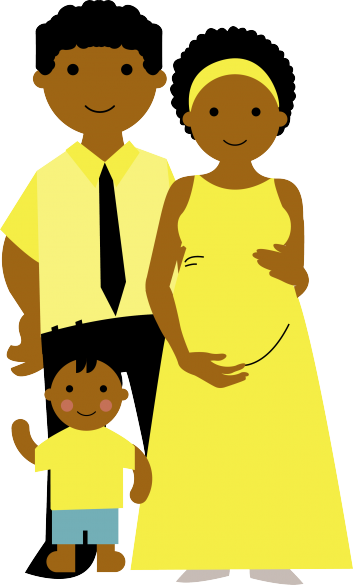Safety and stimulation
Family’s support, a relaxed environment and assistance at home will contribute considerably towards a positive experience for mom and the rest of the family.
Nurture your sense of humor. Try to laugh daily, whether at yourself, your situation, or something outside of all this.
Structure your day. Plan loosely how you'll spend your day, designating time for all the items on this list. Keep the plan flexible and realistic so you can stick to it.
Postpone other major life changes. Avoid taking on a new job, a new home, or a new partner until you feel more settled in your new role of mother.
Family’s support, a relaxed environment and assistance at home will contribute considerably towards a positive breastfeeding experience for mom and the rest of the family.
Don’t be afraid to ask for help! Mothers requiring assistance can contact their closest maternal health facility for free advice and demo sessions.
Your child is an explorer at this stage. He/she is getting to know the world they are living in. Enjoy it with him/her. Always make sure your child is safe. Steer them away from danger and be close to them at all times.
Reading
- Play music and sing, read and talk to your child.
- Read from storybooks and make it interesting by using your voice in different ways.
- Read nursery rhymes and stories with interesting animal sounds.
- Look at cardboard books with single pictures on a page especially animals.
- Join the library.
- Use books with baby’s first words in it, to give them the opportunity to ‘read’ with you by pointing to a picture.
Gross and Fine Motor
- Let your baby lie on his tummy on a clean soft blanket on the floor to help with muscle development. It is called “tummy time”. Stay with your baby.
- Help your baby to stretch. Put some toys on a blanket/play mat in front of him.
- Encourage your child to help when getting dressed/undressed e.g. say: ’lift your arms’.
- Help your child to stand up and to move side ways whilst holding onto furniture. When your child can walk, encourage him/her to explore his world.
Listen and Talking
- Hold and touch your baby. It will make him feel safe.
- Bond with your baby by giving plenty of cuddles, love and attention as these are VERY important for a baby’s healthy development.
- Use single words/short sentences when talking to your baby e.g. ‘milk’ ‘want more?’, ‘All done!’
- Play in front of the mirror and talk about all your child’s body parts (tickle, touch, kiss).
Toys and Books
- Books (bath, touch/feel, card board pages), books, big shapes in contrasting colours will do wonders for a child’s development.
- Rattles, soft toys (teddies, cubes, balls), plastic bath toys, noise makers (e.g. bells), soft teething toys that are safe.
- Use books with baby’s first words, lift-the-flap books, words with silly rhymes and animal sounds.
What can Dads do?
Care for the baby in other ways other than feeding (baths, nappy change, walks and helping around the house).
What can family and friends do?
Listen and be supportive. Boosts mom’s confidence in breastfeeding. Provide emotional support and practical help (grocery shopping, cooking meals or tidying the house).


